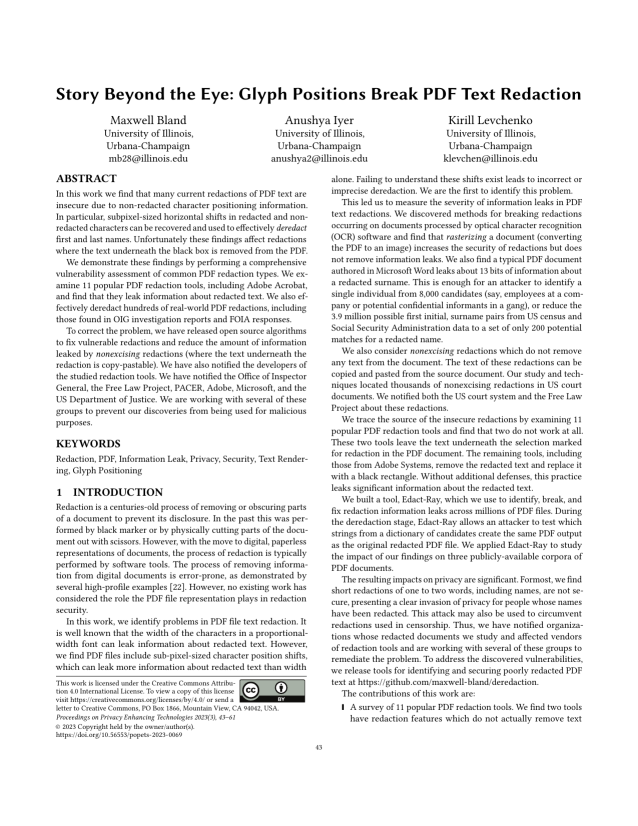Story Beyond the Eye: Glyph Positions Break PDF Text Redaction
Authors: Maxwell Bland (University of Illinois, Urbana-Champaign), Anushya Iyer (University of Illinois, Urbana-Champaign), Kirill Levchenko (University of Illinois, Urbana-Champaign)
Volume: 2023
Issue: 3
Pages: 43–61
DOI: https://doi.org/10.56553/popets-2023-0069
Abstract: In this work we find that many current redactions of PDF text are insecure due to non-redacted character positioning information. In particular, subpixel-sized horizontal shifts in redacted and non-redacted characters can be recovered and used to effectively deredact first and last names. Unfortunately these findings affect redactions where the text underneath the black box is removed from the PDF.
We demonstrate these findings by performing a comprehensive vulnerability assessment of common PDF redaction types. We examine 11 popular PDF redaction tools, including Adobe Acrobat, and find that they leak information about redacted text. We also effectively deredact hundreds of real-world PDF redactions, including those found in OIG investigation reports and FOIA responses.
To correct the problem, we have released open source algorithms to fix vulnerable redactions and reduce the amount of information leaked by nonexcising redactions (where the text underneath the redaction is copy-pastable). We have also notified the developers of the studied redaction tools. We have notified the Office of Inspector General, the Free Law Project, PACER, Adobe, Microsoft, and the US Department of Justice. We are working with several of these groups to prevent our discoveries from being used for malicious purposes.
Keywords: Redaction, PDF, Information Leak, Privacy, Security, Text Rendering, Glyph Positioning
Copyright in PoPETs articles are held by their authors. This article is published under a Creative Commons Attribution 4.0 license.


